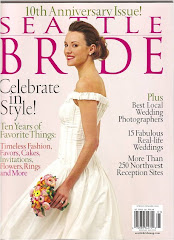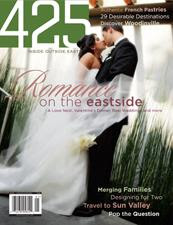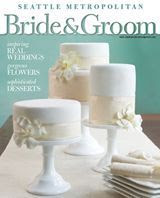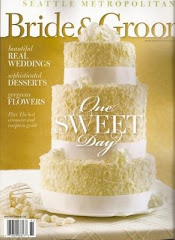 Today in the mail I received the most thoughtful note from my dear friend, Molly Cartwright. Molly is one of the most gracious people I have ever met and I'm always amazed at how she can take the time to simply drop a note of thanks, thinking of you, or just a quick hello with her busy schedule.
Today in the mail I received the most thoughtful note from my dear friend, Molly Cartwright. Molly is one of the most gracious people I have ever met and I'm always amazed at how she can take the time to simply drop a note of thanks, thinking of you, or just a quick hello with her busy schedule.Her mail brought up a great topic - thank you notes. When I was a child, my mother had a simple rule about thank you notes: You can play with the new toy as soon as you write your thank you note! You can wear the pretty new dress as soon as you write your thank you note! Somehow, unfortunately, that great lesson has faded somewhat. So, one of my resolutions this year is to honor my late Mom's lesson and take a few moments to thank the wonderful people in my life.
I found the following article from the late Leslie Harpold on writing a thank you note. I think it's succinct, funny and memorable. I hope you will as well.
Somewhere in between your mom making you sit down with your Peanuts® stationery and you shooting off an email, you completely lost touch with the concept of simple thank-you notes. Now that you’re a grown-up, an email just won’t do, and more is expected of you than scratching out ‘Thanks for the present, you rock!’
Grandma might not say anything to you, but trust me: She and her friends are probably at this very moment sighing over how young people today just don’t have manners.
As extra motivation, I will also grudgingly tell you the hidden secret of thank-you notes: They improve the frequency and quality of the gifts you receive. People like being appreciated, and if they feel you actually notice the nice things they do for you, they’re more likely to give an encore performance. Do not, however, use this as a strategy to avoid writing thank-yous to those who regularly give gifts you do not like. Every gift deserves a thank-you. Even the ‘Keep On Truckin’’ blacklight poster your crazy Uncle Alvarez gave you when you moved into the dorms.
I assure you, writing thank-yous is easier than you remember. Get yourself some stationery, plain note cards or a selection of attractive postcards (yes, postcards are perfectly acceptable!), and proper postage. Avoid the pre-inscribed ‘Thank you!’ cards in loopy script, as there are times you’ll want to write notes where that aesthetic feels all wrong. Better to choose paper you like. Stay away from full-size sheets—note cards are best, as your message will be brief, and would look silly swimming around on a page that large. Store all of these items somewhere easily accessible and preferably in plain sight so you won’t hesitate too long or forget too easily. Say, the top drawer of your desk or on a bookshelf at eye level or below.
If you want to know when you get a genuine pass on writing a note, the litmus test is simple: Do I live under the same roof as the giver? If the answer is ‘yes,’ you need not write a thank-you note (although a thank-you Post-It might be a nice touch).
I’m not going to go all Miss Manners on your ass and get into the social intricacies and delicate situations that surround thank-you note writing, as I was taught that a solid thank-you note will transcend all complicated situations—and I have seen no evidence to the contrary.
There is a six-point formula to the proper thank-you: Learn it, know it, memorize it—and it will never fail you.
1. Greet the Giver
Dear Aunt Sally,That’s the easy part, but you’d be surprised how many people forget it. Dale Carnegie taught us people love to hear their own names and Direct Marketing is sure we also love to read them in ink. That’s right, ink. Blue-black is always the number-one choice, but black will suffice in a pinch. Don’t let a whimsical marker color be the most stunning part of your note: instead let the words sing without the amplification of rainbow hues. Even if your handwriting is poor, you must still hand-write your notes. Do not type them or, worse, use a word processor. No excuses.
2. Express Your Gratitude
Thank you so much for the slippers.This first paragraph seems like it would be the easiest, but it is actually the most complicated. Beware the just writing trap. You are not ‘just writing to say’ as in I am just writing to say;. If the giver is reading, clearly you have already written. Therefore use the present-perfect tense, which essentially means write as if whatever you say is happening in the moment.
Also—and this is important—never directly mention money. ‘Thank you for the hundred bucks’ could instead be ‘Thank you for your generosity.’ All cash denominations become ‘your generosity’ or ‘your kindness.’ If you feel the giver overspent, the farthest you can go is appreciated: ‘Your generosity is appreciated,’ or ‘It is such an extravagant gift—your kindness is appreciated.’
If you’re writing to thank someone for an intangible (such as them putting you up at their place while you were in town for the weekend), first define what the intangible thing is, and then make the gift sound as attractive as possible. In other words, don’t say: ‘Thanks for letting us crash at your place.’ Instead say: ‘Thank you for your hospitality.’ Don’t worry if it sounds too simple; the point of writing the note is to create a simple expression of a heartfelt sentiment.
3. Discuss Use
that’s stating the obvious
It gets very chilly here in the winter, so they will get a lot of use when winter comes.Say something nice about the item and how you will use it. Let’s say it’s something you actually love and use incessantly—then say so: ‘Ever since I got the slippers I have only taken them off to shower and go to work. I’d wear them to the office if I thought I could get away with it.’
But don’t lie, even though some etiquette books may tell you it’s okay. After all, there’s always a truth that can be extracted. Let’s say you hate the slippers. How to say thanks? Find the one thing about them that’s nice and discuss it—but don’t get carried away. ‘They are such a lovely shade of blue’ works, and is more honest than ‘These slippers make my heart sing like a choir of angels,’ which is overkill. If it was a gesture, like letting you stay at their place, you can follow the lines of ‘It’s so nice to make a personal connection while traveling. I really appreciated my time with your family.’
If the gift was cash, allude to how you will use the money, but do not itemize your planned purchases line by line, instead simply say: ‘It will be a great help when we purchase our new home/toaster/lava lamp/whatever.’
You can get arty here, but not flowery. It’s a fine line. Small, realistic statements like ‘I put the flowers on the kitchen table and they are still looking fresh and beautiful after a week,’ or ‘I don’t know which is more fun, actually using the Cuisinart, or reading recipes and thinking I could do that in the Cuisinart!’ Having fun is alright, so have at it.
4. Mention the Past, Allude to the Future
It was great to see you at my birthday party, and I hope to see you at Dad’s retirement in February.Why did they give you the gift? What does it mean to your relationship with the giver? Let the giver know how they fit into the fabric of your life. If it’s someone you see infrequently, say whatever you know: ‘Mom tells me you’re doing great at Stanford, and I hope we cross paths soon.’ If it’s someone you’re in regular contact with: ‘I’ll call you soon, but I wanted to take time to say thanks.’ If it’s some errant family member you have little or no contact with, simply go with ‘You are in my thoughts and I hope you are well.’ Nice, right?
5. Grace
Thanks again for your gift.It’s not overkill to say thanks again. So say it.
6. Regards
Love,Simply wrap it up. Use whatever works for you: Love, Yours Truly, With Love. Then sign your name and you’re done.
Leslie
_________________________________________________________________
PHOTO BY nextbook.org
















5 comments:
I enjoyed this post. It is a great reminder to us in this age of email, evites and text messages. As a concierge, I try to send handwritten thank you cards, but sometimes, even I get lazy.
Jody, my mom was the same way. And when an aunt or friend did receive my card, my mother would say they received my "lovely note". I always loved that & have thought about starting a line of cards called "lovely notes" (if it hasn't been done already).
I used to love to go to the stationery store and get all kinds of boxed stationery and pens that made sending the cards and writing letters from camp so much fun.
I try as much as possible to send hand written notes because it does add that personal touch.
Great post and thank you:)
What a helpful post! Handwritten thank you notes are special and should never be out of style. Thanks for sharing!
Anne
Jody - what a great post. I am sorely lagging in the thank you note department but you've motivated me to put these on my urgent-to do-list.
As always - you're the best and when I get a round tuit - I'll send you my TY note.
XOXO
Amy
Awesome awesome post... as mentioned above in the comments, it's easy to get lost in the digital age with all the emails etc.
However there's nothing more beautiful that getting a lovely hand written thank you card in the mail from someone who appreciates you :)
- Liz
Post a Comment